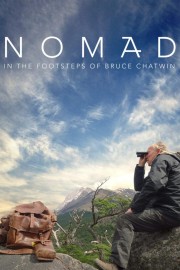Nomad: In the Footsteps of Bruce Chatwin
In addition to exploring his protagonists when he makes a documentary, Werner Herzog almost always reveals things about himself, and his worldview. In Timothy Treadwell, Herzog finds a kindred spirit in someone whom recorded the randomness of nature. In the scientists in Antarctica, Herzog engages in his own drive to challenge nature on its own terms. With “Nomad,” there’s a moment late in the film where he keeps insisting that this documentary is about his friend, the travel writer and journalist Bruce Chatwin, but we’ve come to learn as much- if not more- about Herzog in this film than maybe any other he’s made. Deep down, I think Herzog recognizes this, and it’s part of why “Nomad” might be the most revealing film of his.
Whether you’re talking about a film like “Aguirre, the Wrath of God” or “Fitzcaraldo” or “Grizzly Man” or “Encounters at the End of the World,” one thing that is undeniable about Herzog is how nature is a source of fascination for him, the way we study it, and the way we can be swallowed whole by it. I feel like Herzog subscribes to the same philosophy of the universe as Stanley Kubrick did when he said, “The most terrifying fact about the universe is not that it is hostile but that it is indifferent, but if we can come to terms with this indifference, then our existence as a species can have genuine meaning.” Film after film, Herzog seems to attack nature on its own terms, and finds profound meaning in the actions of his protagonists and his own work. In a way, Chatwin’s work is more significant than most others Herzog has highlighted; he was a storyteller, someone who- in their travels- found importance in chronicling cultures and ways of living that seemed like they needed to be preserved as humanity moved forward. By telling Chatwin’s story, Herzog feels the need to preserve them, as well.
My time in Boy Scouts gave me a respect for nature, and its beauty, that has never really gone away. This isn’t to say that I could live in nature for a significant period of time, but there is something about waking up, and seeing green- or hills, or mountains, or a lake- that just resonated with me. Chatwin exploring nomadic cultures, the Aboriginal tribes in Australia, and a cave where the Giant Sloth was discovered. His interest was in chronicling history, and also times and cultures that- if he didn’t bring them to our attention- might be lost to time. In one particular case, writing about the songlines of Aboriginal tribes in Australia, is compelling; according to anthropologists and elders in the region, records of the songlines are not, necessarily, for the eyes of outsiders. On the one hand, I’m grateful for Chatwin (and Herzog) for bringing my attention to these, but if they are not meant for us, doesn’t even acknowledging them here violate an ancient tradition? As fascinated as I was by this, it’s one of those things where, maybe, leaving different cultures and their practices in the dark to us might be what’s best.
“Nomad” is a philosophical document as much as it is a biographical documentary. Through Herzog, we’re discovering the worldview of a man who, even when illness- he died of AIDS in 1989- limited his ability to travel, found humanity’s willingness to take long journeys, often unsure of where they would lead us, endlessly enriching. In Herzog, we see an artist and individual who was clearly impacted by him knowing Chatwin, and for whom, this film, seems like the work of someone who wants to make sure he shares both his friend’s story- and his own- as fully as he can before time eventually takes him. He may insist his films are about their subjects, but deep down, you start to feel like he knows his story is as important as any of theirs, and I’m always thankful that he has chosen to share it.










